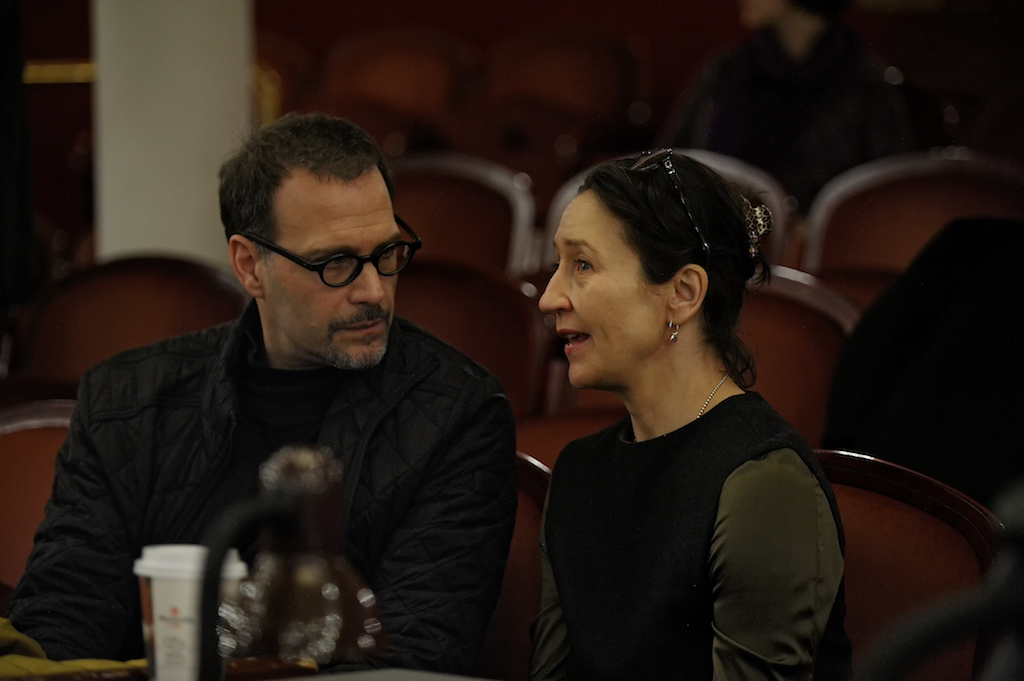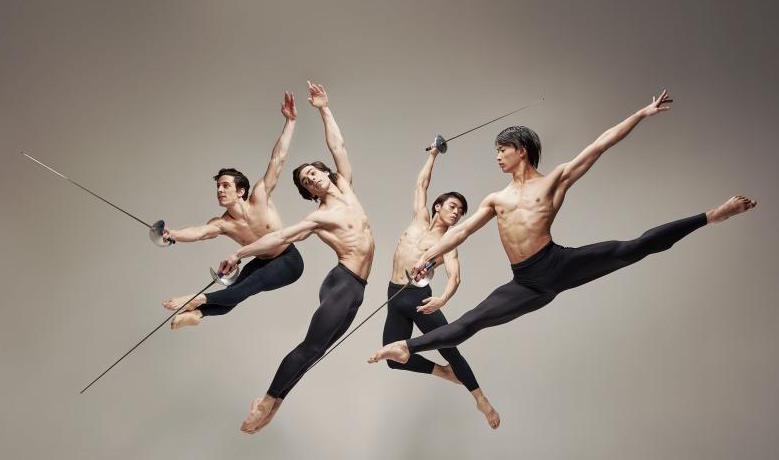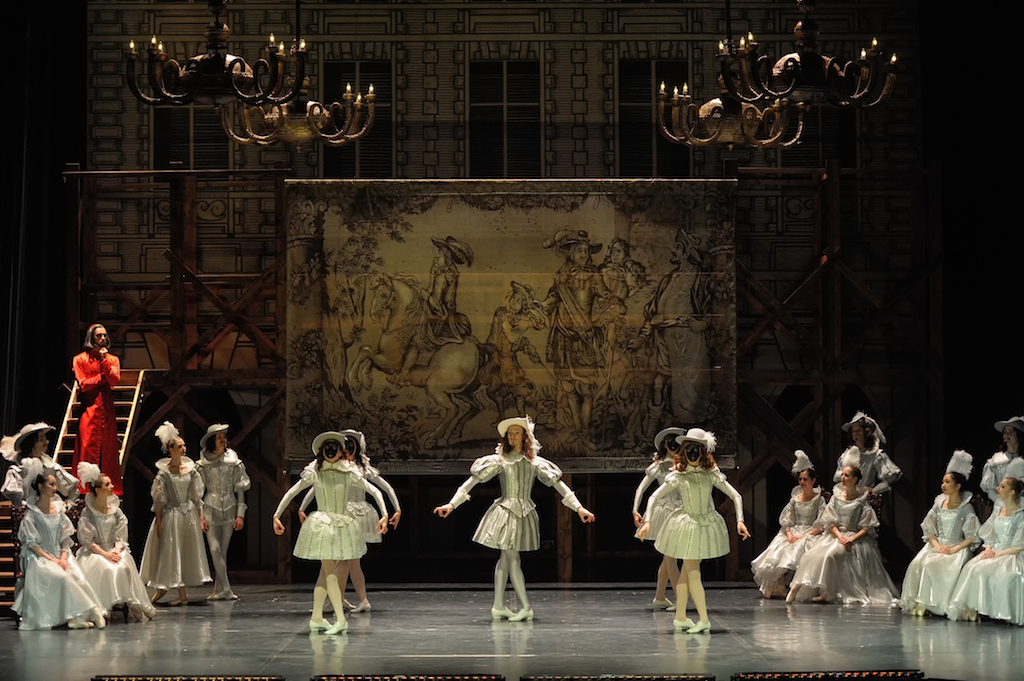Librettist Wiebke Hüster about The Three Musketeers: "Theatre is the perfect way to slip into a time machine."
 Today, March 23rd 2017, a world premiere of the ballet The Three Musketeers by Canadian choreographer Paul Chalmer will take place in Antonín Dvořák Theatre Ostrava. On this occasion, we interviewed the librettist of the ballet, German dance critic Wieke Hüster.
Why did you choose The Three Musketeers?
Today, March 23rd 2017, a world premiere of the ballet The Three Musketeers by Canadian choreographer Paul Chalmer will take place in Antonín Dvořák Theatre Ostrava. On this occasion, we interviewed the librettist of the ballet, German dance critic Wieke Hüster.
Why did you choose The Three Musketeers?Well, „The Three Musketeers“ is a story offering a lot of fascinating action. Actually, the choreographer Paul Chalmer himself had the idea to develop a ballet around the three heroes who had already been starring in so many Hollywood productions. When Paul was working with the company last time, that was when he did „Cinderella“ in 2015, the General Director had asked him whether he had any ideas for a new story ballet. Chalmer of course had! He thought it would be nice to create a new full length story ballet for the men in the company as they were at that time already – and of course still are - a nice strong group. In addition to that, the men in the company deserved being rewarded not only for their hard work in the studio, he felt, but also they should be compensated for the fact that the company had just produced „La Sylphide“ and „Swan Lake“ in past seasons which are both more for the girls...
Did you start with just the novel or did you do research into the period? Did you draw inspiration from a theater or film adaptation?
We did watch Paul W.S. Anderson's 2011 version of the „Musketeers“ in which Christoph Waltz is Kardinal Richelieu to Orlando Bloom's „Earl of Buckingham“, and Mads Mikkelsen is Rochefort to Milla Jovovich's Milady de Winter. But then of course from there we did go back to the novel first and studied it to discover and understand all details of the intrigue and now we do emphasize other details than a movie possibly can and will. The most important study for our research of the historical background was „Raison souveraine“ by Karin Hann.
 What were the challenges in adapting story on ballet?
What were the challenges in adapting story on ballet?The difficulties with transforming the story of the Musketeers into a ballet are numerous. How do you show the landing of an airship on Notre Dame Cathedral on a ballet stage? No, seriously: For example, how do you rescue all the artistry in the book manifesting in the delicate dialogues, the irony, the sense of humour, the fear, without creating too much mime. Literature can be so exquisitely precise and poetic, characters in books can be so ambigious and multi-facetted. That is really hard to achieve in a ballet, if not impossible at all. But the main problem was how could the audience be enabled to clearly follow the plot without having to read the argument in the program book first?
Do you have a favorite character in The Three Musketeers?
Actually, not surprising at all, Anna of Austria is our most beloved character in the ballet. She is witty, charming, beautiful and a tortured soul. She has to live by rules not made to create happiness in the world. On the contrary, obeying and serving King and Country comes first – and hardly anything after. Our idea that love is basic for marriage – which is anyways not ideal maybe – stems from 19th century bourgeoisie. Before you were married for political and economic reasons.
Where do you see the strongest connection between the story and today? Is this important for you at all?
To be honest, we had long fallen in love with the period as well as with the characters of Anna and of D'Artagnan - sweet, young, unexperienced at first, but incredibly courageous. The political aspects of the story have a certain timeless, classical appeal. Love of course is a feeling of such power that people do still put their lives at risk – so in these two rather general aspects of the story we hope you do find it's got a lot to do with our lives. And yet we don't have any problems with telling a colourful,dark, dangerous story that could in this way certainly not happen today. Theatre is a perfect way to slip into a time machine and discover a different epoch from your's without risking to be killed in a duel or die from puerperal fever.
 Wiebke Hüster is a German writer, dance critic and yoga teacher based in Frankfurt am Main. She is the author of Birgit Keil. Ballerina: Glück ist wenn auch die Seele tanzt. - a biography of John Cranko's First Soloist and long-time Director of Badisches Staatsballett Karlsruhe. Hüster is the Chief Dance Critic of Germany's most influential newspaper Frankfurter Allgemeine Zeitung. She reviews dance events and publications on radio for Deutschlandradio Kultur and Deutschlandfunk and has published in Ballet Review and Die Zeit.
Wiebke Hüster is a German writer, dance critic and yoga teacher based in Frankfurt am Main. She is the author of Birgit Keil. Ballerina: Glück ist wenn auch die Seele tanzt. - a biography of John Cranko's First Soloist and long-time Director of Badisches Staatsballett Karlsruhe. Hüster is the Chief Dance Critic of Germany's most influential newspaper Frankfurter Allgemeine Zeitung. She reviews dance events and publications on radio for Deutschlandradio Kultur and Deutschlandfunk and has published in Ballet Review and Die Zeit.


